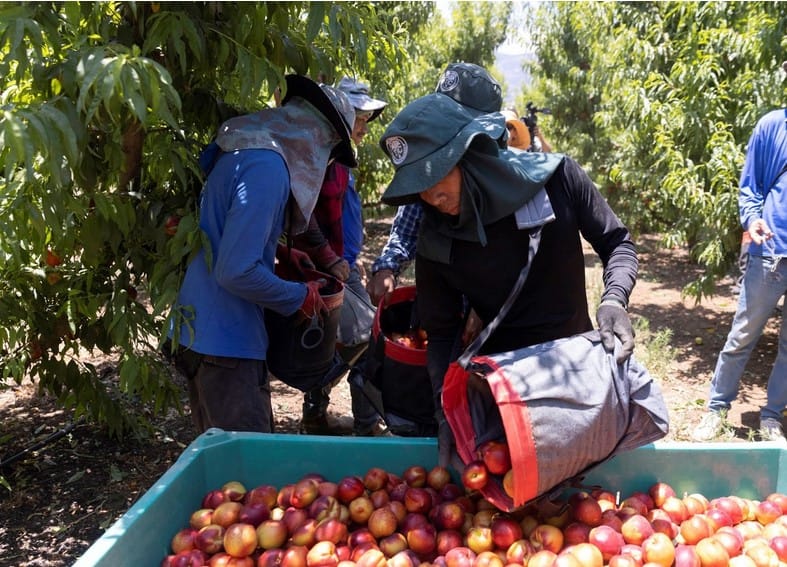KLO Analysis on the occasion of 7 October 2024
A year into the war, many workers in Israel have had to deal with cumulative effects of the conflict on their body, pocket and soul. Kav LaOved, an organization protecting the rights of all vulnerable workers in Israel, has monitored the war’s repercussions from day one.
Migrant Agricultural Workers
On 7 October 2023, dozens of migrant agricultural workers were murdered, injured, and kidnapped. As many as 39 agricultural migrant workers from Thailand were murdered along with 10 agricultural “trainees” from Nepal, 2 from Tanzania (the body of one is still held in Gaza) and one from Cambodia. The latter had arrived in Israel only two or three weeks earlier to study advanced agriculture, but in practice serving as cheap labor on farms. Thirty-one workers from Thailand and one Nepalese were kidnapped that day. In November 2023, as part of a hostage deal, 23 workers from Thailand were liberated. Only six of the eight migrant workers from Thailand still being held in the Gaza Strip are known to be alive along with the student from Nepal.
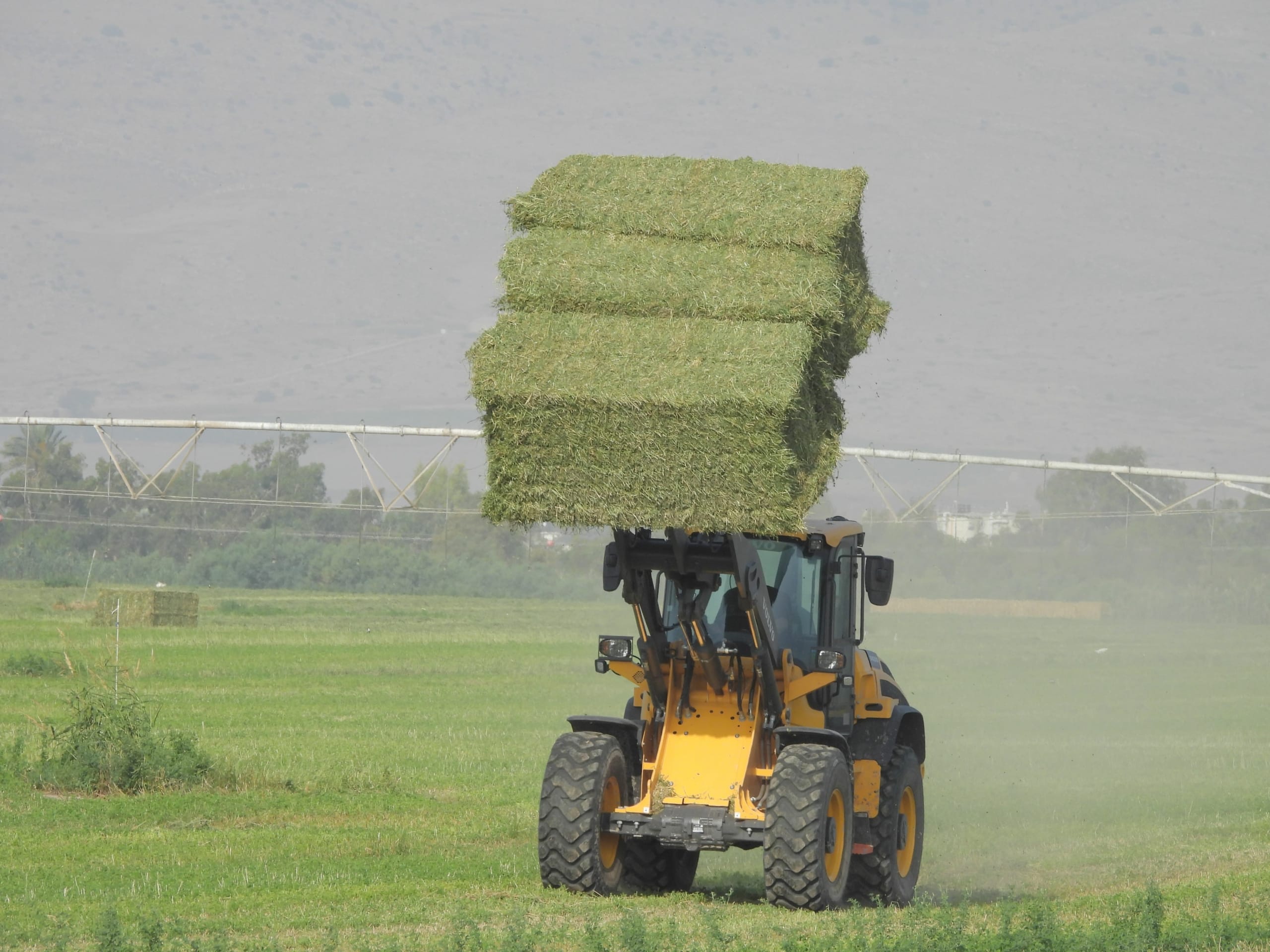
In October 2023 the Thai government called its citizens to leave Israel and organized rescue flights. Thousands of migrant workers left Israel, but others started arriving shortly after that from India, Sri Lanka, Malawi and Thailand. Many arrived through private recruitment, after paying thousands of dollars in brokerage fees in their countries for their work visa, sometimes without being properly informed about the working conditions and wages they will receive in Israel. On arrival they found themselves dealing with employers and placement agencies with whom they could not communicate, with some being sent to work in areas directly affected by warfare such as the Lebanese border and the Gaza envelope area, with missiles landing without warning in the fields where they work and in their accommodations. Even today, in line with a government’s special order, workers continue to work in fields near the frontlines, in areas completely evacuated from their residents, supplying agricultural produce to the civil population and the army. Against this background, on 3 March 2024 a migrant agricultural worker from India was killed when hit by a missile while working in Moshav Margaliot, and his friends were injured.
The State of Israel is helping farmers facing the war’s fallouts on their businesses, some are seeing their entire life’s work go down the drain, but it has abandoned the workers to their fate. It assisted the hostages who were released, and the workers injured on 7 October, neglecting however the welfare and safety of all the rest, even minimizing their rights’ enforcement. Since 7 October Israel has recruited thousands new agricultural workers ignoring bilateral agreements, abandoning them to middlemen who charge thousands of dollars for the right to work in a war-torn country. The result is grim: migrant workers enslaved to debt are forced to work on dangerous farms, often without getting the minimum wage and other rights. Their employers complain about their low standards and cry out for other workers – Palestinians – whose entry into Israel is denied since 7 October.
Y., a migrant worker from India came to work in Israel after 7 October 2023 as Israel was massively recruiting new migrant agricultural workers throughout the world. At first he was sent to work in a chicken coop in the south: “I was their only non-Israeli worker, and I had no one to talk to. I worked 12 hours a day, but I was only paid 8, and on Saturdays I was expected to work at my employer’s house helping with cleaning and laundry, for free. I was distressed and asked to move to another place. In the second place, I lived in a cargo container with 20 other workers and only one toilet. I was expected to remove garbage and clean sewage pits. I was also worried that if I stayed, I would lose my visa as an agricultural worker. KLO spoke to the placement agency that brought me here and now I’m in a much better place. I work in a nursery, and we have a shelter nearby. I feel much safer.”
Israeli Workers
Since the war’s outbreak many Israeli workers whose job was directly affected by the conflict have not been able to access any compensation and lost critical income. Governmental decisions were taken without implementation instructions which produced a chaotic policy void with many workers falling between the cracks. At KLO we have come across, for example, workers put on unpaid leave retroactively but denied retroactive unemployment benefits. We are advocating with the authorities to see this practice reviewed.
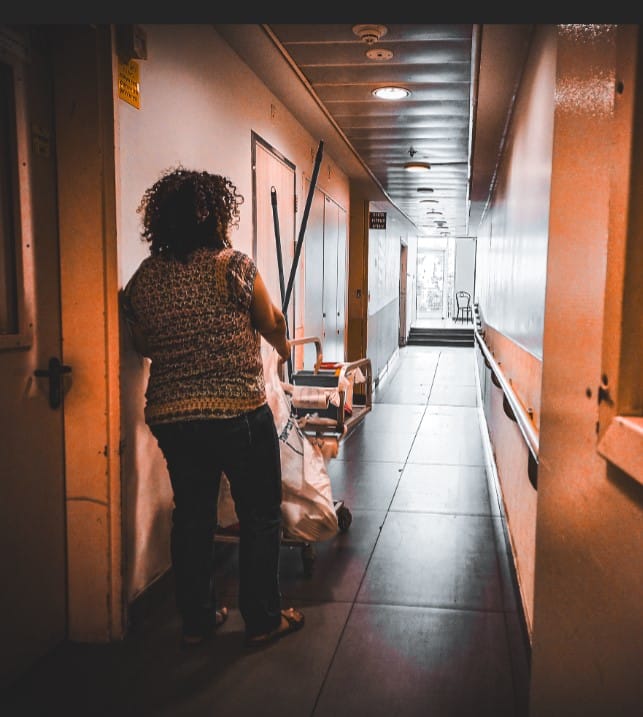
Workers who were absent from work because of Home Front Command orders, or because their communities were evacuated and their children’s schools and kindergartens closed – have also experienced ongoing uncertainty regarding lost wages. The choice they were left with was often either to continue working under heavy safety risks or live on debts. Many workers who withdrew their pension funds also discovered that their employers hadn’t bothered paying into it.
Contract and hourly workers in Israel – a third of Israeli workers – are not entitled to unemployment benefits and unpaid leave. After 7 October 2023 they were left with no other choice than to continue working. KLO advocated their inclusion into protections and compensation schemes for workers and demanded solutions to be found for them. This insistence promoted a first-of-its-kind legislation, which is expected to deploy a protective net both in routine and emergencies while limiting the time period a worker can be employed on hourly basis.
K. and S., a couple with two children with special needs, were evacuated from their home in the north and waited for state compensation hundreds of kilometers away from their home and livelihoods. When S’ employer received compensation for her from the state, he only transferred it gradually, with months’ delay, but she gritted her teeth hoping to return soon to work. That didn’t happen. “After I was left without an income for months, I received a letter informing me that the state had run out of money, and I had to go on unpaid leave. My position was frozen, along with my pension contributions, National Insurance payments and other benefits. If I agreed to go back to my job, to a place being shelled every day, I would get lots of money.”
Palestinian Workers
The largest group of workers affected by the war is that of Palestinian workers. Tens of thousands of workers were expelled from their jobs from one day to the next and have been left without a livelihood for a year already. Israel has not provided these workers with any solution, has not allowed them to withdraw compensation without giving up their work permits, and has made it difficult for them to withdraw their pension funds. Only a few thousand continue to work in essential factories and settlements – subject to Israeli interests and decisions made by the military commander. The Palestinian Authority is prevented from intervening in their case, and severe unemployment is affecting the entire West Bank.
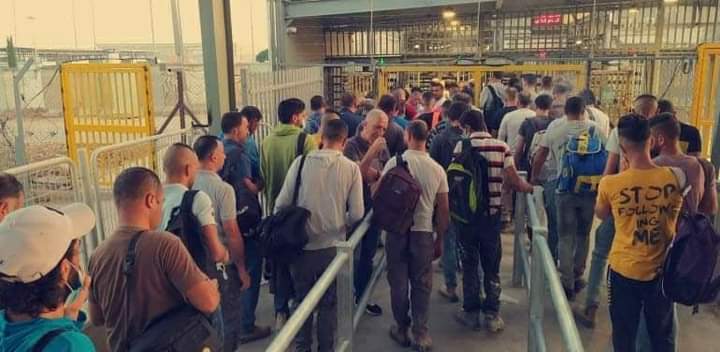
Professional workers, who were accustomed to earning above the average wage and who enjoyed a relatively high standard of living for decades, now find themselves agreeing to any available job in the West Bank for only a few dozen shekels a day. Some sell cups of coffee and various items at intersections, having borrowed easy-to-transport goods from stores. Prolonged unemployment breaks families amid scarcity and uncertainty; it deprives young people of education in the absence of tuition money, and enslaves many to loans and debts.
Ali (not his real name), 58 years old, is a father of three. Three years ago, as he lived on a daily wage of 500 shekels (more than 130 US$), he withdrew all his savings to buy a car for his family. On 7 October his world collapsed, and since then he has been unemployed. “My daughter had to stop her studies to support us with a meager clerical salary,” he says, “I felt terrible about it, so I decided to try working for a short period for a contractor in Israel as I had an entry permit for medical treatment. I worked nine hours a day in terrible fear. I was always afraid they’d catch me and hurt me, and when I had to buy food I was especially scared. I asked a driver to bring me a mattress and clothes from home for a fee, but after a week someone informed on me and my employer told me I had to leave. I returned to the harsh reality of my life as an unemployed person in a refugee camp.”
Khalil (not his real name), 30 years old, is a father of two. In 2023, Khalil was injured twice in construction work accidents. We helped him get injury pay and reimbursement for medical treatment, but only today – a year and a half after his last injury – we received the pay slips necessary to get him a disability pension. “I withdrew all my savings after I was injured in a work accident, to survive, and now that I am recovering, I can’t go into Israel to work. Three months ago I took a huge risk and entered Israel through a breach in the fence, working in construction for 22 days for an employer who promised to pay at the end of the month. One night there was a police raid on the site, and I ran away with only my clothes on my body. With great difficulty, I got home, without a penny in my pocket. The employer promised to pay, but then blocked me and does not answer my calls anymore.”
Asylum Seekers
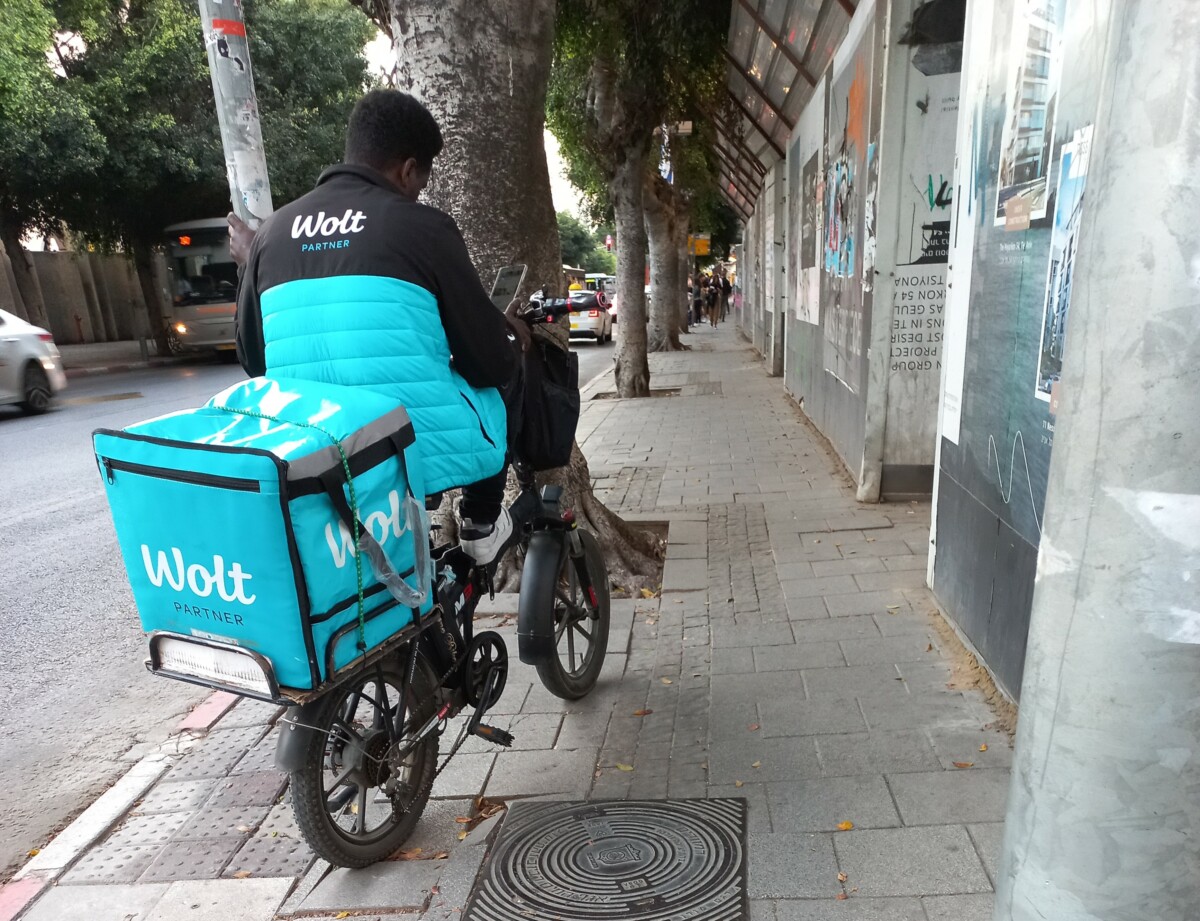
Asylum seekers in Israel were also harmed by the war on a personal, family, and community level. Four Sudanese and Eritrean asylum seekers were killed on 7 October during the attack on the communities around the Gaza Strip. Thousands have since suffered the loss of jobs and livelihoods, and personal insecurity. Those living in Tel Aviv’s wider area often live in old apartments, without a safe room or shelter, and have small children who tremble at every alarm. Those working in outdoor jobs, like gardeners and street cleaners, reported to us difficulties obtaining information and receiving real-time instructions. They also told us of arbitrary dismissals including of pregnant women profiting from the chaos generated by the war. We mapped out a series of pregnant women dismissals and filed complaints with the Equal Employment Opportunity Commissioner, resulting in investigations and the return of the dismissed workers to their jobs or the payment of all their wages and social rights, first and foremost the renewal of their health insurance.
After 7 October 2023 we assisted a large group of asylum seekers evacuate Sderot and find an alternative home in Kibbutz Hannaton. We then started assisting many asylum seekers who were dismissed in the turmoil of the war but, due to their lack of status, could not get unemployment benefits, unpaid leave, allowances or any other type of income support. After raising the issue with the authorities jointly with other organizations, a governmental decision was published in March 2024 prescribing that every person evacuated from the conflict zone, or unable to continue working as a result of Home Front Command orders, is entitled to receive the salary of (only) three months in which s/he did not work. After employers claimed that asylum seekers were not included in the order we requested and obtained that the Tax Authority addresses clarifications to employers’ organizations stating that all evacuated workers are entitled to the retroactive three months. Families in severe distress finally had a little air to breathe.
R., an offices cleaning worker went on maternity leave in May 2023. “I asked to go back to work in September 2023,” she says, “but the contractor said he had already found a replacement for me. I called again and again and went to his office, but no one paid attention to me or brought me back to work. In the end I went to KLO, and after they spoke with the employer, I received compensation of NIS 14,000 for the months he didn’t give me work. I understood that what he did to me was illegal – because I was returning after maternity leave – and I was surprised that they didn’t understand that in war we have to work because we don’t have Israeli rights, and we don’t have savings.”
Migrant Caregivers
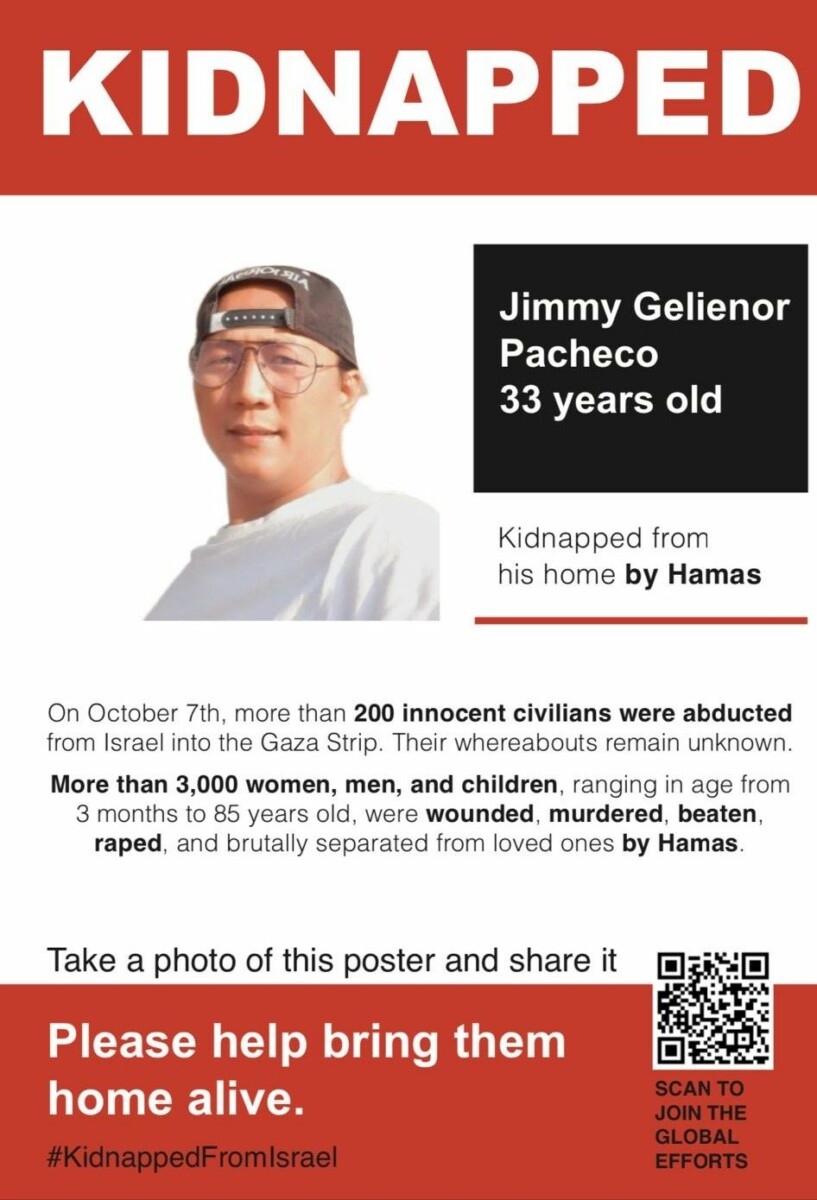
Seven migrant caregivers were murdered on 7 October 2023, and one was abducted to the Gaza Strip and later released. Many migrant caregivers who lived with their patients in the areas surrounding the Gaza Strip experienced mortal fear, including some who saved their patients’ lives with unimaginable bouts of resourcefulness and courage. The state assisted the injured workers and the families of the killed and abducted ones, providing them with compensation. The workers remaining on the ground, however, were left to cope alone with their distress and helplessness. They received no mental health assistance, compensation, or real-time help, and are still forced to make difficult decisions every day, including every time the siren goes off. Some families instruct workers living with their clients in homes without a safe room or shelter: “In case of an alarm, take care of yourself, don’t try to move Mom.” Probably as they know that running to a safe space endangers elders in long-term care. Many workers find it difficult to comply with this directive and often choose to stay with their patients.
KLO has also been contacted by migrant caregivers who were evacuated with their patients. Some were evacuated to hotels where they live with their employer in one room, sometimes sleeping in the same bed or on a bedside mattress. Some have been evacuated to apartments far from the conflict zones where they are trying to maintain a routine amidst ongoing uncertainty. Their employers received an “occupancy grant” according to the number of people evicted, but not many shared this grant money with their workers.
S., a caretaker from the Philippines, woke up on 7 October 2023 convinced that her life was over: “There are no words that can describe the fear I felt that day. I was working and living in Kibbutz Nahal Oz, the closest kibbutz to the Gaza border, when the siren woke me up. There were non-stop booms. After about an hour, I heard a lot of gunshots, explosions, and the sound of motorcycles outside. Another caregiver wrote in the group chat that there were terrorists around and warned us that the terrorists were already inside the kibbutz. I was terrified and didn’t know what to do. At a certain point, a piece of very harsh news came from a friend who lives on the kibbutz: the grandfather she worked for was shot dead.”
A., a caretaker from Moldova, describes the anxieties she has been dealing with for the past year: “7 October was a traumatic day for everyone living here, including me, a migrant caregiver. The sights, sounds, and news that flowed through that day shook me deeply, and I was scared all the time. Every noise at night, every unexpected sound, makes me jump and I fear an impending disaster that won’t allow me to protect my patient and myself.”

